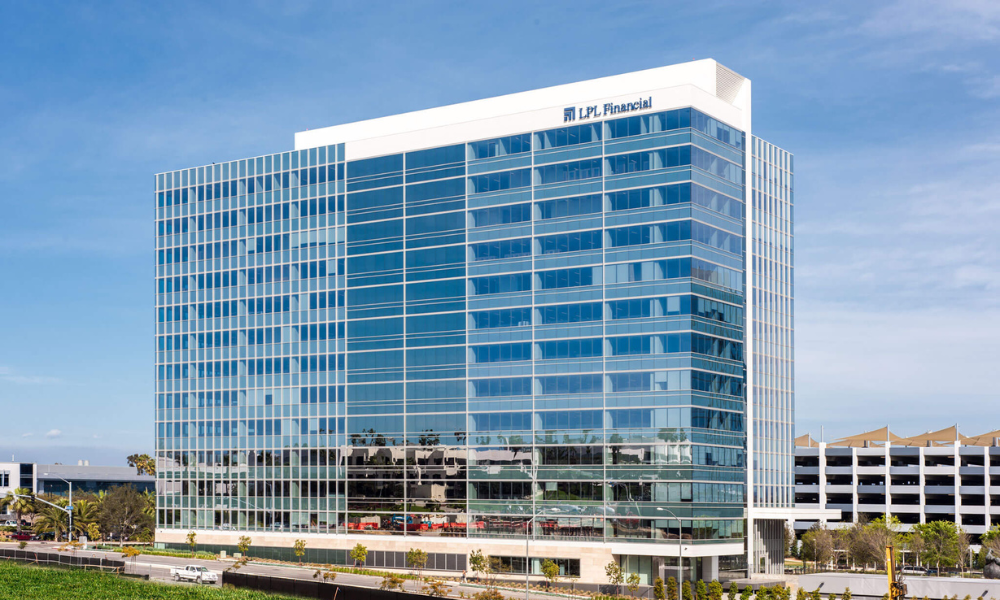

LPL Financial Holdings Inc. and its former CEO Dan Arnold, who was fired this fall, said on Monday they had agreed to a settlement regarding Arnold’s stock options, which had been deferred when the board fired him for cause on Oct. 1.
Under the settlement, Arnold is walking away with options worth $12 million, or about 15 percent of the aggregate total value of the severance benefits and equity awards that he would have been entitled to receive or retain, had he been terminated “without cause” or “for good reason,” LPL Financial Holdings said Monday morning in a filing with the Securities and Exchange Commission.
Back-of-the-envelope math shows that Arnold’s total benefits and stock awards before being fired were close to $80 million. Arnold is retaining close to 48,000 of stock options and forfeiting 94,000, according to the filing.
Arnold could not be reached Monday to comment.
With the ticker LPLA, LPL Financial Holdings saw its stock price make a spectacular rise under Arnold, from close to $36 per share at the time he was promoted to chief executive in 2017 to close to $230 on Oct. 1, an increase of more than six times, when he was fired for cause by LPL’s board after an investigation into his conduct.
Ever since, LPLA shares have continued to run, reaching a new 52-week high on Monday of $332.91.
Arnold had been the ultimate survivor of LPL Financial’s series of executive battles of the last 20 years.
But in the end he was fired as the giant brokerage’s CEO for making statements, not yet known publicly, to employees that violated the company’s code of conduct.
“Professional conduct is one of those key issues a board has a responsibility to measuring and understanding,” said one senior industry executive, who spoke privately to InvestmentNews about Arnold. “He was not allowed to resign.”
It was a punishing end to Arnold, 59, who became CEO of LPL Financial Holdings at the start of 2017 and managed the firm, now with more than 22,000 financial advisors, to new heights.
Arnold, a graduate of Auburn University in 1988 with an undergraduate degree in electrical engineering and then got his master’s in business administration from Georgia State University three years later, was a president at the bank broker UVEST Financial Services when it was bought by LPL in 2007.
Known for his close attention to detail, he rose through the ranks at LPL, outlasting competition like Bill Dwyer, Esther Stearns, Derek Bruton, and Robert “RJ” Moore. He was managing director and divisional president until 2011 and then promoted to chief financial officer. In 2015, he was bumped up again to president before becoming CEO in 2017 after Mark Casady retired.
Under the terms of the settlement Arnold can exercise the retained options starting Dec. 16 to the end of the year. The settlement also contains a general release of claims by Arnold against LPL, as well as non-competition, non-disparagement, and non-solicitation provisions. The non-competition and non-solicitation provisions run through the end of next September.

Rajesh Markan earlier this year pleaded guilty to one count of criminal fraud related to his sale of fake investments to 10 clients totaling $2.9 million.

From building trust to steering through emotions and responding to client challenges, new advisors need human skills to shape the future of the advice industry.

"The outcome is correct, but it's disappointing that FINRA had ample opportunity to investigate the merits of clients' allegations in these claims, including the testimony in the three investor arbitrations with hearings," Jeff Erez, a plaintiff's attorney representing a large portion of the Stifel clients, said.

Chair also praised the passage of stablecoin legislation this week.

Maridea Wealth Management's deal in Chicago, Illinois is its first after securing a strategic investment in April.
Orion's Tom Wilson on delivering coordinated, high-touch service in a world where returns alone no longer set you apart.
Barely a decade old, registered index-linked annuities have quickly surged in popularity, thanks to their unique blend of protection and growth potential—an appealing option for investors looking to chart a steadier course through today's choppy market waters, says Myles Lambert, Brighthouse Financial.
